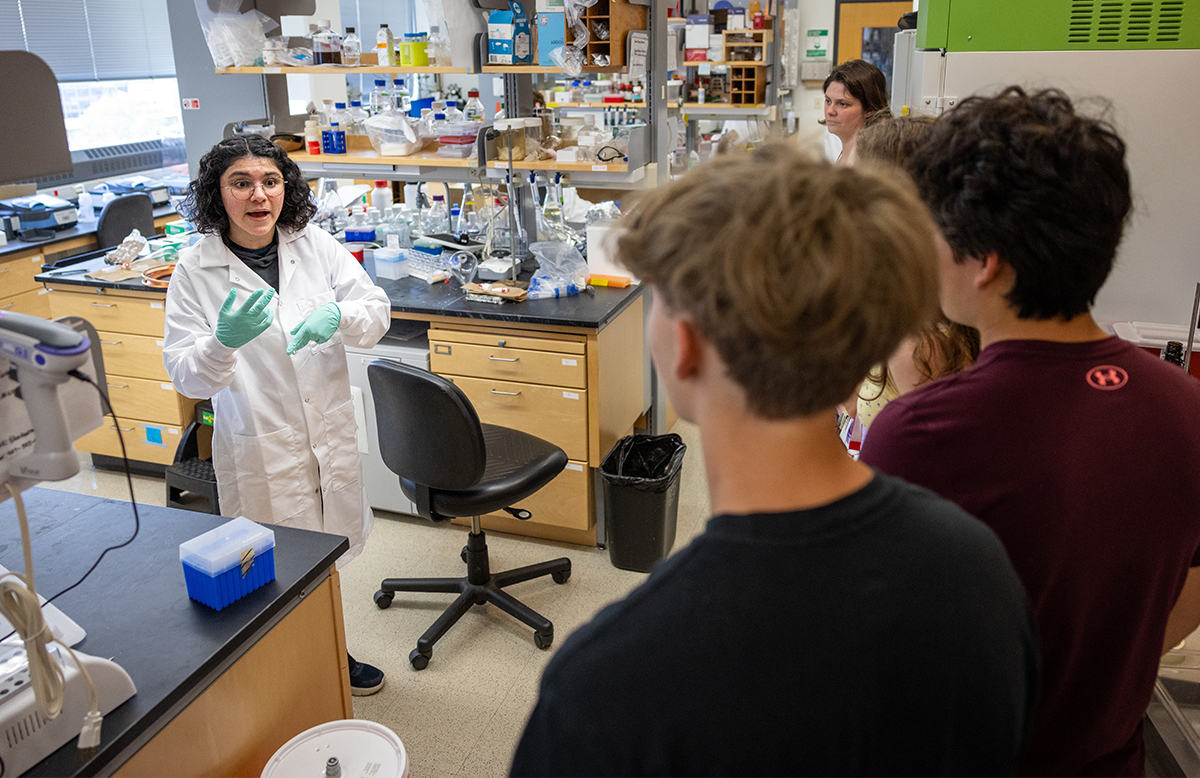High Yield
High Priority: Tomorrow’s Scientists
The CALS Fund can be a lifeline for graduate students during a time of unprecedented cuts in federal support for universities.

The tradition of federal support for higher education in the United States goes back more than 160 years. Bolstered by federal funds, land-grant universities such as UW–Madison have diversified their public missions over time, expanding beyond instruction to also include research, outreach, and extension.
It’s a massive commitment to the nation’s citizens, and federal dollars are integral to the entire operation. For example, at UW, federal funding provides 25% of the overall budget.
Ongoing dramatic changes in the U.S. government threaten this major source of support for UW and other leading research universities. Sweeping policy shifts could severely cut financial aid through grants and loans, which would curtail access to higher education. The federal government is also dialing back on its usual contributions to research through competitive grants.
“All of this severely hinders the ability of universities to strengthen the nation’s health and economy,” says CALS Dean Glenda Gillaspy. “We’re also particularly worried about the impact on graduate students. At CALS, we’re educating about 500 graduate students supported by federal grants at any given time. These scientists-in-training are major participants in the research process, the leaders of future discoveries. But their assistantships in labs and classrooms rely on federal dollars. If they’re forced to abandon their education due to funding, where will the innovators and teachers of tomorrow come from?”
CALS and UW continue to advocate for federal support in hopes of reversing the current course. They’re also looking for ways to support graduate students in the near term. One potential tool is the CALS Fund. It’s a flexible pool of private resources designed to help the college quickly adapt and respond to emerging needs. And it only exists thanks to generous gifts, large and small.
Brian BS’00, MS’03 and Jill Huenink BS’03, both agricultural engineering graduates, prioritized giving to CALS as soon as they could after earning their degrees. In addition to growing a scholarship fund, they make annual gifts to the CALS Fund.
Brian Huenink’s motivation for giving stems from multiple personal experiences. For one, scholarships helped him complete his undergraduate education virtually debt free. And the CALS mission has always resonated with him.
Huenink is the manager of a product engineering division at John Deere, and he grew up on a farm in Sheboygan County, where he still farms today. For decades, he has witnessed how CALS scientists test new technologies on experimental plots and, through extension efforts, bring proven methods directly to farmers. This process assumes risks that growers and producers can’t take themselves, he says.
“As a farmer, you don’t have a lot of leeway to say, ‘I’m going to plant these 80 acres with something experimental, and if they don’t turn out, no big deal.’ That’s actually a huge deal,” Huenink says. “You need to have some confidence that what you’re trying out can ultimately improve your bottom line. I was able to see firsthand that connection to the university and the value that it provided.”
Huenink understands how integral graduate students are to the research and extension process that benefits farmers. So, using the CALS Fund to retain graduate students has his full support.
“It brings students to campus that ultimately can enable or facilitate expanded research,” he says. “One professor with a good group of grad students can really knock out a lot of research in a very short period of time.”
Huenink says he hopes others will recognize the value and critical nature of graduate students by contributing to a fund that can help keep them on campus during a challenging period for higher education.
Support Graduate Students Through the CALS Fund
Contact Ayana Blair by email or at 608-590-7062, or make a gift online.
This article was posted in Fall 2025, High Yield and tagged CALS Fund, federal research funding, graduate students.

